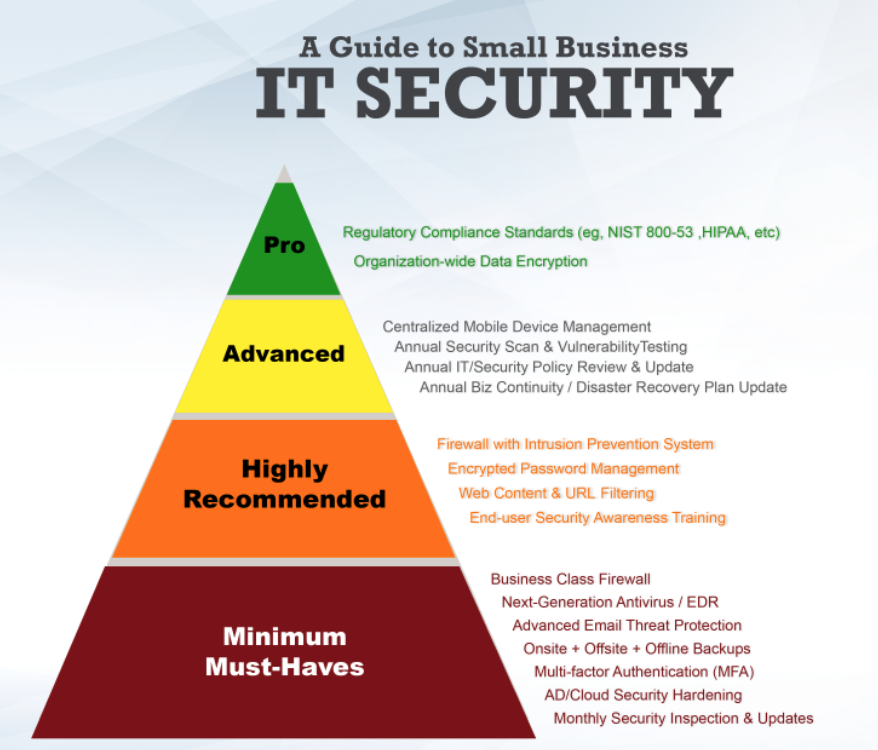Not all small businesses have the same needs when it comes to cybersecurity. Different factors, such as industry regulations or number of employees, can dictate what’s necessary for you to do. However, there are certain security strategies all small businesses must use to keep their data, their customers, their employees, and their funds safe.
Where do you stand?
Business Network Consulting (BNC), which provides expert Austin IT support to small businesses, has drawn up a Guide to Small Business IT Security.

Use this pyramid to determine where you stand—and where you should be when it comes to cybersecurity.
The minimum that every small business should have includes—but is not limited to—a business class firewall, next-generation antivirus (NGAV), and multi-factor authentication (MFA). If you don’t have these pieces of the puzzle in place, your business is vulnerable to cyberattack, without question.
But, even if you check all the boxes in the “minimum must-haves” base of the pyramid, you may very well need to have a higher level of security.
BNC security experts highly recommend that your business class firewall have an intrusion prevention system, for example. Another way to thwart potential threats is to educate your employees by instituting end-user security awareness training. If your users don’t know the ways in which they might inadvertently expose your business to data theft, they’re far more likely to make a mistake.
Where could you be?
The more advanced your IT security set-up, the less likely you’ll have to deal with the fallout from cybercrime. Chat with a BNC expert to find out if you could benefit from system vulnerability testing, which could expose weak points in your security so you can strengthen them before a hacker finds their way in.
Another advanced small business IT security recommendation is to have an annually updated disaster recovery plan in place. Or, if your employees primarily communicate primarily remotely, it might be important for you to implement centralized mobile device management.
Finally, if you want those big-ticket clients and customers, you might be required to apply regulatory compliance standards in certain industries. Let’s say you’re looking to break into the health care field. You’ll need to take HIPAA compliance into consideration for your internet security before you’ll ever land a big fish.
What do you need?
As hackers apply more clever methods for infiltrating company networks, it becomes more important that businesses carefully plan their IT security strategy. And yes, even small businesses fall prey to all kinds of online schemes and cyberattacks.
If you’re in Austin, TX, and need someone to review your current cybersecurity procedures, BNC can help you out. Its IT support and security experts will examine where you stand, tell you where you should be, and help you determine what you need. Contact BNC for more information about what they can do for you.
